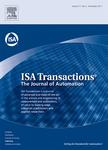版权所有:内蒙古大学图书馆 技术提供:维普资讯• 智图
内蒙古自治区呼和浩特市赛罕区大学西街235号 邮编: 010021

作者机构:Cairo Univ Fac Engn Elect Power Dept Giza 12613 Egypt
出 版 物:《ISA TRANSACTIONS》 (美国仪表、系统和自动控制协会会刊)
年 卷 期:2024年第148卷
页 面:307-325页
核心收录:
学科分类:08[工学] 080401[工学-精密仪器及机械] 0804[工学-仪器科学与技术] 0811[工学-控制科学与工程] 081102[工学-检测技术与自动化装置]
主 题:Reinforcement learning Imitation learning DDPG algorithm Fuzzy logic Collective pitch control Wind turbines
摘 要:Wind turbines (WTs) have highly nonlinear and uncertain dynamics due to aerodynamic complexity, mechanical factors, and fluctuations in wind conditions. Turbulence and wind shear add complexity to modelling, especially in constant power region (region 3). Thus, an effective control design demands a deep understanding of the nonlinearities and uncertainties. This paper suggests a novel model-free reinforcement learning (RL) collective pitch angle controller to operate efficiently in region 3. The proposed controller stabilizes generator speed, maximizes power output, and minimizes fluctuations while accommodating system uncertainties, nonlinearity, and pitch limits. The disparity between WT dynamics due to wind speed perturbations and uncertainties is measured using a gap-metric criterion. The controller design adopts a deep deterministic policy gradient (DDPG) algorithm to train six agents in a medium-fidelity WT environment at different mean wind speeds to ensure the controller s robustness. Initially, imitation learning is used for efficient sample collection to fasten training convergence. Afterwards, the agent learns by interacting with the environment. After the training, the pitch control outputs from multi-trained agents are processed by a fuzzy system to have smooth transitions under different operating conditions. The resulting fuzzy DDPG (F-DDPG) controller is deployed to obtain the optimal pitch control action. The performance of the proposed F-DDPG controller is compared to the gain-scheduled PI (GSPI), Linear-Quadratic-Regulator (LQR), and single-DDPG-agent controllers. The controllers are simulated in high-fidelity onshore and offshore 5-MW WT environments using the OpenFAST/MATLAB simulation tools. The results reveal the superiority of the proposed controller in generalizing its optimal performance in different operating conditions.